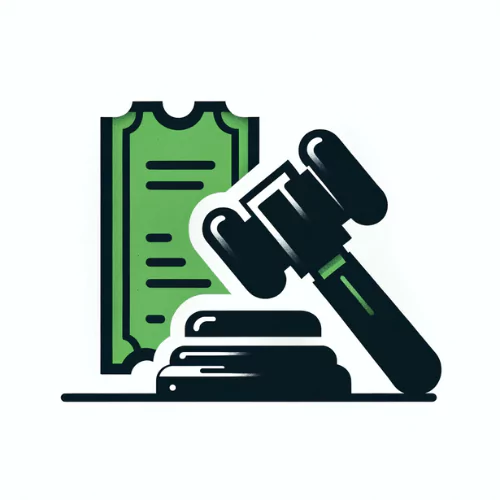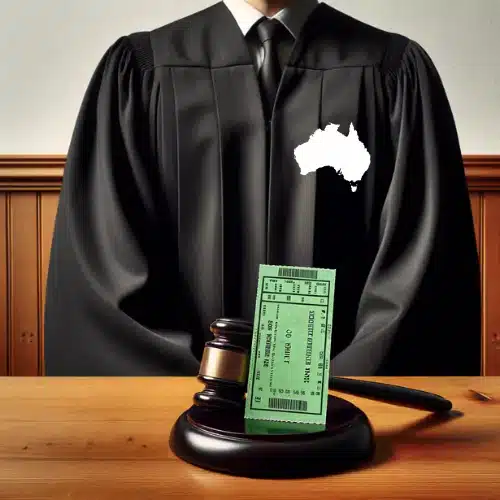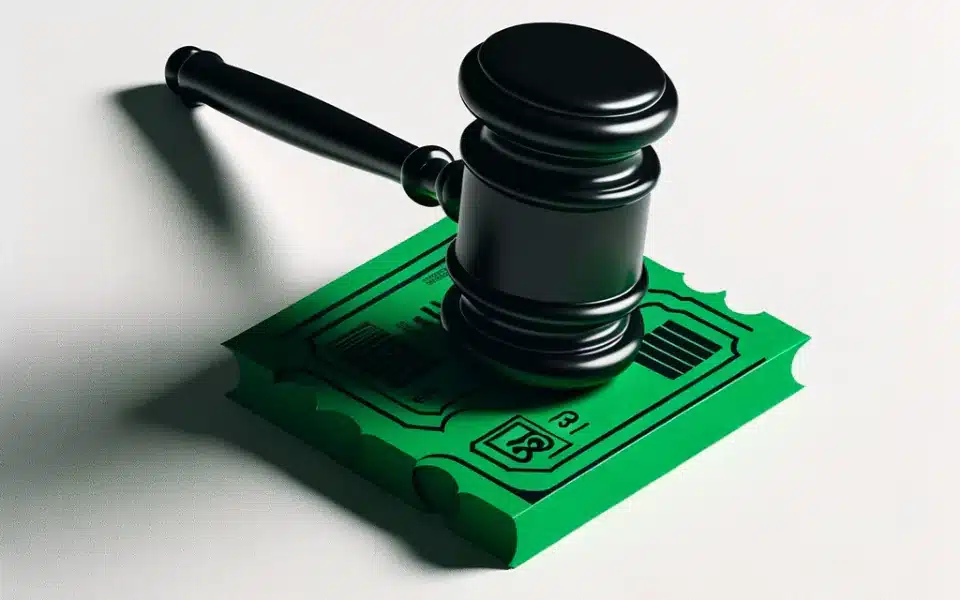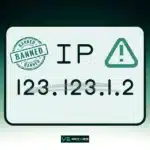Ever been to a highly-anticipated game or concert only to be deterred by the price of resale tickets? Sometimes even three or four times the original cost? Well, you’ve encountered ticket scalping, a practice that sparks controversy and shines a spotlight on the intersection of law and economics. This article discusses the diverse layers of ticket scalping laws across the USA, Canada and Australia offering you a comprehensive look at state-specific laws. You have a question of “Is ticket scalping illegal in (City)”? We have the answers.
Table of Contents
- What Is Ticket Scalping?
- Questions We Will Answer
- Is There A Federal USA Law Regulating Ticket Scalping?
- Is Ticket Scalping Illegal In California?
- Is Ticket Scalping Illegal In Texas?
- Is Ticket Scalping Illegal In New York?
- Is Ticket Scalping Illegal In Florida?
- Is Scalping Tickets Illegal In Michigan?
- Is Scalping Tickets Illegal In Georgia?
- Is Ticket Scalping Illegal In Australia?
- Is Ticket Scalping Illegal In Canada?
- How Law Enforcement Tries To Stop Ticket Scalping
- Public Sentiments and Controversies Surrounding Ticket Scalping
- Examining the Economic Impact of Ticket Scalping
- TL; Dr
What Is Ticket Scalping?
First, let’s clear the air. What is ticket scalping? It’s a practice where individuals buy tickets to an event with the sole purpose of reselling them at a higher price for a profit. While it’s controversial, the question of its legality isn’t as universally defined.
So, is ticket scalping legal? It depends on where you are. In some states, it’s perfectly legal while other states have specific restrictions in place. Read on for a deep dive into the state-specific laws on ticket scalping across the USA. We’ve also explored ticket scalping laws in other countries for an international perspective.

Questions We Will Answer
- Is there a federal approach to ticket scalping laws?
- How do California, Texas, New York, and Florida perceive ticket scalping?
- What are the approaches of Australia, Canada, and other jurisdictions?
- How is law enforcement tackling this issue?
- What controversies and public sentiments surround ticket scalping?
- Has the rise of digital platforms contributed to the pervasiveness of online ticket scalping?
- What are the economic implications of ticket scalping?
- Are there legal alternatives to ticket scalping?
Stay tuned for insightful answers to these questions, and gain a comprehensive knowledge of ticket scalping laws both within the USA and beyond.
Is There A Federal USA Law Regulating Ticket Scalping?
In the United States, there is no federal law that addresses ticket scalping. However, the Better Online Ticket Sales Act prohibits the circumvention of a security measure, access control system, or other technological control measure used online by a ticket issuer.
The Act also prohibits selling or offering to sell an event ticket obtained through such a circumvention. The Act applies to event tickets for public concerts, theater performances, sporting events, and similar activities at venues with seating capacity of over 200. Some states have their own ticket reselling laws regarding ticket scalping, and these laws vary from state to state. We will address this in the cominng sections.

Is Ticket Scalping Illegal In California?
In California, the unauthorized sale, or “scalping,” of tickets to entertainment events is illegal under Penal Code 346. This law prohibits individuals from selling tickets at a price that exceeds the printed or endorsed value while on the grounds of the event venue, and it is considered a misdemeanor offense.
The law requires the written permission of the owner or operator of the property for resale of the tickets. Therefore, in California, ticket scalping is illegal if the seller does not have permission to resell the tickets or if the resale price exceeds the face value of the ticket. The law also applies to the sale of tickets obtained for the purpose of resale at a price higher than face value.
However, ticket brokering, which involves selling tickets through third-party or online platforms, is permissible as long as the seller has the written permission of the owner or operator of the property. The law aims to regulate the resale of tickets to ensure equitable access to event tickets and prevent price inflation.
Is Ticket Scalping Illegal In Texas?
In Texas, there are no specific state laws against ticket scalping. The absence of state legislation means that ticket scalping is not illegal in Texas. Unlike some other states such as New York and New Jersey, Texas does not impose strict limitations or penalties on the resale of tickets above their face value.
Therefore, individuals in Texas are generally free to resell tickets at a price higher than the original face value without violating state law. It’s important to note that while Texas does not have a law against ticket scalping, the state has passed legislation aimed at preventing the use of bots in online ticket purchases.
Is Ticket Scalping Illegal In New York?
In New York, ticket scalping is illegal under state law. The law prohibits the resale of tickets at a price that exceeds the original face value by more than 10% or $5, whichever is greater. This regulation aims to prevent the unfair inflation of ticket prices and ensure equitable access to event tickets.
Additionally, New York has implemented consumer-friendly ticket legislation, requiring ticket sellers to disclose all fees and the original face value of the tickets. Violation of these laws can result in penalties and fines. The official sources for this information include the New York State Senate website and the announcement by Governor Kathy Hochul.
The new legislation aims to increase transparency for consumers by banning hidden fees, expanding penalties for scalper bots, and prohibiting delivery fees on electronically or home-printed tickets.
Is Ticket Scalping Illegal In Florida?
Based on the most up-to-date sources, ticket scalping, or the resale of tickets above face value, is legal in Florida, provided that certain guidelines are followed. The Florida Statutes Title XLVI, Section 817.36, allows a person or entity to charge only $1 above the admission price charged by the original ticket seller when reselling tickets,
Additionally, the law prohibits the use of bot software for ticket purchases and requires ticket resellers to disclose the original face value of the ticket and any additional fees.
So, while ticket scalping is not illegal in Florida, there are regulations in place to ensure transparency and fairness in the resale of event tickets.
Is Scalping Tickets Illegal In Michigan?
Scalping tickets in Michigan is no longer illegal. In 2020, the state repealed its ban on ticket scalping, making it legal to resell tickets for profit. Michigan’s ban on reselling event tickets at prices above face value had been in place since 1931. The repeal was part of an effort to help consumers and provide more flexibility in reselling tickets.
The law states that:
- Sellers can’t pretend to be the event or venue when they sell tickets.
- Sellers must have the tickets in hand when they sell them, or let the buyer know they don’t.
The repeal of the ban on ticket scalping reflects a significant change in Michigan’s ticket resale laws, allowing for more freedom in the resale of event tickets.
Is Scalping Tickets Illegal In Georgia?
In Georgia, ticket scalping is regulated by state law. According to Georgia law:
- If you are the original ticket holder, you can sell the tickets for a profit as long as you are not hanging around outside the venue.
- However, if you are not the original ticket holder, you can’t resell the tickets unless you are a licensed broker.
The Georgia Athletic and Entertainment Commission also has regulations in place regarding the resale of tickets by ticket brokers. So, while ticket scalping is not explicitly illegal in Georgia, there are rules that govern the resale of event tickets in the state.
Is Ticket Scalping Illegal In Australia?
Broadly speaking, ticket scalping is not illegal in Australia, and there are no national anti-scalping laws. However, various anti-scalping legislations and laws are enforced on a state level. Currently, the Australian Capital Territory (ACT), New South Wales (NSW), Queensland, South Australia (SA), Victoria, and Western Australia (WA) all have laws around reselling tickets.
For example:
- In NSW, SA, and WA, scalpers can only sell tickets at 10 per cent above their original sale price across all venues.
- In Victoria, the Major Sporting Events Act 2009 prohibits scalpers from reselling tickets to “major events” for more than 10 per cent above face value.
- The Ticket Scalping Act 2021 in Western Australia also regulates ticket reselling.

Is Ticket Scalping Illegal In Canada?
Based on the official sources, ticket scalping is regulated at the provincial level in Canada. For example:
- In Ontario, the Ticket Speculation Act prohibits the resale of tickets above face value, and the use of bots to purchase tickets is also banned.
- In Quebec, it is illegal for ticket brokers to resell a ticket for more than the face value of the ticket.
How Law Enforcement Tries To Stop Ticket Scalping
Law enforcement tactics to curb ticket scalping include:
- The implementation of anti-scalping legislations.
- Prohibition of ticket resale above a certain percentage of the original price.
- Requiring ticket scalpers to be licensed by the state.
- Banning the use of bots to purchase tickets
- Imposing penalties on those found guilty of illegally scalping tickets.
These measures aim to regulate the resale of tickets, prevent price inflation, and ensure equitable access to event tickets. However, the effectiveness of these tactics can vary, and some sources argue that ticket scalping laws may be outdated and difficult to enforce, leading to calls for a reevaluation of these regulations.
Public Sentiments and Controversies Surrounding Ticket Scalping
The viewpoints and debates regarding ticket scalping are notably diverse and polarizing. Some individuals perceive it as a harmless opportunity to capitalise on high-demand events, presenting a win-win situation for both the ticket scalper and purchaser.
Contrastingly, others denounce it as an unethical scheme exploiting unsuspecting customers. Disputes extend to the negative consequences on fans, such as skyrocketing prices and limited ticket availability.
In sum, the public sentiments and disputes surrounding ticket scalping encapsulate an intricate and frequently controversial dialogue on its economic, moral, and consumer implications.
Examining the Economic Impact of Ticket Scalping
The economic impact of ticket scalping stirs debate. Proponents argue it improves efficiency by matching tickets with true fans willing to pay more, benefiting both fans and organizers. Opponents counter that regulations disrupt this process and high prices simply reflect demand surpassing supply. While some worry “true fans” get priced out, others see scalping as a fair way to get tickets to those who value them most. Ultimately, the issue remains complex, with valid arguments on both sides.
TL; Dr
- Ticket scalping’s legality varies across the USA, Canada, and Australia, with no federal law in the USA specifically addressing it.
- States like California and New York have laws against scalping, while Texas, Florida, and Michigan are more lenient.
- In Australia, anti-scalping laws differ by state, and in Canada, regulations vary provincially.
- Law enforcement combats illegal scalping through legislations, price regulation, licensing, and bot bans.
- Public opinions on ticket scalping are mixed, and its economic impact remains a topic of debate.
Related articles:
What Is MAP Monitoring? [Track Your Pricing Compliance]
- Tags:
- Reselling, Ticketing proxies


